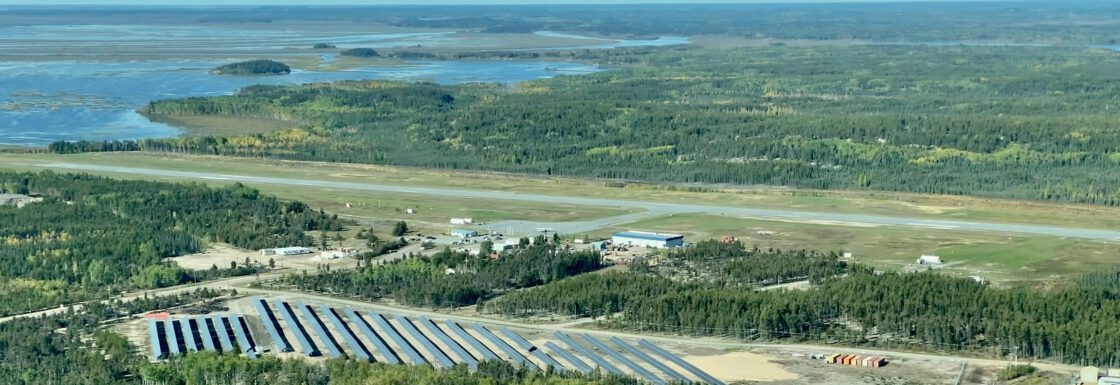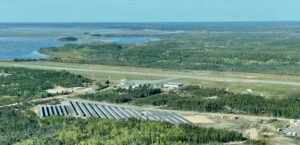A Remote First Nation Community Forges Ahead in Energy Independence: Hitachi ABB Power Grids, ATCO & 3NE

Projects Sponsor
Fort Chipewyan, a First Nation hamlet of 1,200 in the northern reaches of Alberta, Canada, sits on the shore of Lake Athabasca and is Alberta’s oldest established community. It is not connected to the main power grid and has previously relied on burning expensive diesel fuel for electricity production, which relies on a shrinking window of winter ice road access for delivery.
In looking ahead to a more energy independent future, the community took steps to reduce its environmental impacts and formed Three Nations Energy (3NE) in 2018 to bring clean, low carbon, affordable and reliable electricity to the community of Fort Chipewyan. 3NE is an indigenous corporation wholly owned by the Athabasca Chipewyan First Nation, the Mikisew Cree First Nation, and the Fort Chipewyan Metis Association–Local 125.
In addition to challenges with fuel supply, development in Fort Chip, including a new Recreation Centre and transition to more electric heating was driving up community electricity demand. The environmental benefits, coupled with necessary infrastructure updates to accommodate this growing load, formed a powerful case for the solar and storage microgrid project and ultimately a proposal was put forward to the Alberta Utilities Commission for approval.
In 2019, 3NE secured approval to develop and own Canada’s largest remote community solar and storage microgrid project. The two-phased project was developed in cooperation with ATCO, a global essential services company based in Alberta, and the local electricity utility for the North and East-Central regions of the Province who provided engineering, procurement, and construction (EPC) services, including design, construction and maintenance of the system.

With provincial and federal backing of $3.3-million grant from Alberta’s Climate Leadership Plan, 3NE gained approval for the project and partnered with ATCO, to develop an approach that would ultimately reduce reliance on diesel fuel by 25%.
When fully operational, the project will consist of approximately 2600 kW of solar PV generation capacity, reducing diesel consumption by 800,000 liters per year. The solar farm will deliver 2.6 MW of generation capacity and an estimated energy production of 3,200 MWh/year. This is enough energy to fully power about 450 average Albertan homes for a year*.
Hitachi ABB Power Grids, a global technology firm, collaborated closely with ATCO and 3NE to understand the unique needs of the community and long-term intent of the project in order to maximize both energy output and reduce dependence on diesel.
A Hitachi ABB Power Grids solution includes a large Battery Energy Storage System (BESS) and microgrid controls. Together, the BESS and controls will store excess solar generation during the day and return it to the local grid to meet demand in the evening or subsequent cloudy day maximizing fuel savings and avoided costs and greenhouse gas emissions. The control system can turn off all four diesel generators, when possible, allowing Fort Chip to be 100% powered by clean renewable energy.
Both ATCO and Hitachi ABB Power Grids realize the importance of collaboration and engagement with 3NE to ensure the success the project. Together the efforts build on 3NE’s view toward a more reliable, sustainable, and energy independent future in Canada.













